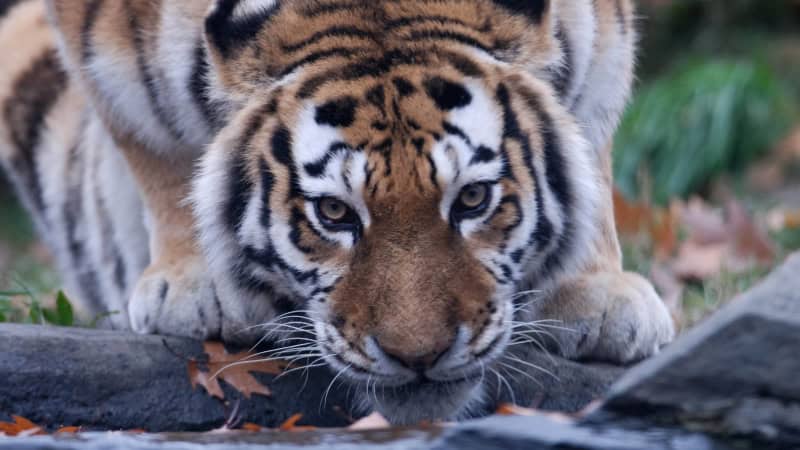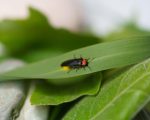NEW YORK – A tiger at the Bronx Zoo in New York City has tested positive for the new coronavirus, in what is believed to be the first known infection in an animal in the US – or a tiger anywhere.
“It’s the first time, to our knowledge, that a [wild] animal has gotten sick from COVID-19 from a person,” says Paul Calle, chief veterinarian for the Bronx Zoo.
The Malayan tiger, named Nadia, likely contracted the coronavirus from an infected—but unknown—asymptomatic zookeeper.
A morning moment of #ZooandAquariumZen brought to you by our Malayan tigers going for a swim. Enjoy! pic.twitter.com/PgWh7rBgei
— Bronx Zoo (@BronxZoo) March 31, 2020
Nadia’s sister, two Siberian tigers, and three African lions have also had coughs and a loss of appetite, though they have not been tested, the U.S. Department of Agriculture announced Sunday afternoon.
The first animal started showing symptoms March 27, and all are expected to recover, said a spokesperson for the zoo, which has been closed to visitors since March 16.
“We tested the cat out of an abundance of caution” and aim to “contribute to the world’s continuing understanding of this novel coronavirus,” said Dr Paul Calle, the zoo’s chief veterinarian.
From Dr. Paul Calle, Bronx Zoo chief veterinarian; "The COVID-19 testing that was performed on our Malayan tiger Nadia was performed in a veterinary school laboratory and is not the same test as is used for people.
— Bronx Zoo (@BronxZoo) April 6, 2020
“You cannot send human samples to the veterinary laboratory, and you cannot send animal tests to the human laboratories, so there is no competition for testing between these very different situations. The COVID-19 testing that was performed on our Malayan tiger Nadia was performed in a veterinary school laboratory and is not the same test as is used for people,” Dr Calle added.
So far, experts have said that the coronavirus outbreaks around the world are driven by person-to-person transmission.
Several domestic animals had previously tested positive for SARS-CoV-2, the virus that causes COVID-19, including a Pomeranian and a German shepherd in Hong Kong, a domestic cat in Belgium.
Cats, both wild and domestic, are susceptible to feline coronavirus, but until recently, it was unknown whether they could contract SARS-CoV-2.
A new Chinese study has found that cats may be able to infect each other, and scientists are rushing to learn what other species may be able to be infected by it.














